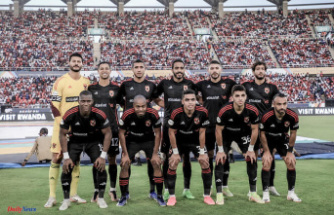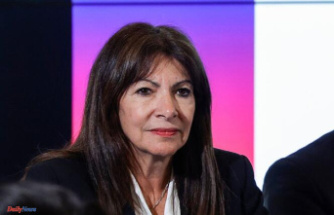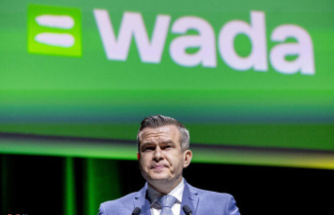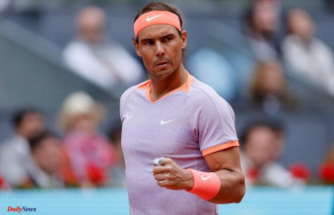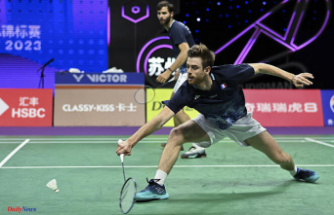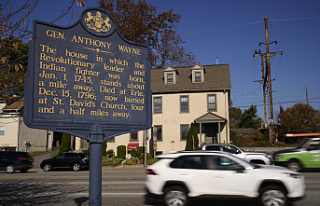What is the problem? Juhasz is from Hungary and is one of the more than 12 percent of college athletes in America. This includes more than 3,000 Division I athletes. The vast majority of these athletes are on F-1 student visas.
These visas forbid students from working on campus, except in very rare exceptions such as internships or work in their fields of study. Leigh Cole, Dinse P.C is an immigration lawyer who assists education clients and employers. She said that on-campus work can be limited to 20 hours per week, or full-time during summer breaks.
She stated that if a school discovers that one of their international student-athletes has been working side jobs and making money from their name, image, or likeness, they are legally obligated terminate their visa. It can have severe consequences.
Juhasz and other international students claim that they were told to decline any NIL deals due to this possibility.
She stated earlier this month that "Back in Europe, everyone is getting paid to play basketball." It was disappointing because (NIL) seemed like an equal opportunity. We expected there would be an opportunity for us to showcase ourselves, build our brand and show our brand.
Juhasz is a senior transfer from Ohio State and is one of three Huskies with F-1 visas. The other two are Nika Muhl from Croatia and Canadian Aaliyah Eds. Geno Auriemma, their coach, says they are among the majority of his players not eligible for NIL deals.
He said, "But, the international children don't even get a chance to see whether anyone wants to do something with them or not." They should be treated the same as everyone else. They should.
Legal experts stated that the U.S. policy to enforce student visa rules was established after the terrorist attacks of Sept. 11, 2001. This was done in an effort to ensure that foreign nationals are in the country for the reasons it says on their visas.
Juhasz stated that it was impossible to cross the line between having a visa for work and being able not to study, or having a visa for study and being unable to work. "So, it's hard."
U.S. Senator Christopher Murphy, a Connecticut Democrat said he believes Congress should create an exception to the work rules that student athletes must follow. He also demanded a federal law that allows all college athletes to earn money beyond what the NCAA decided July 1 to allow for compensation based on the use of an athlete’s name, image, or likeness.
He said, "There is something fundamentally wrong with an industry that earns billions of dollars per year while many of its athletes cannot afford to buy food or fly to their parents to watch them perform." "All college athletes should have the right to use their name, image, or likeness in whatever way they choose. This includes international athletes, who shouldn't have to worry about losing their visa status, nor being able to study in this country.
Opendorse, which helps athletes navigate the NIL landscape, says that most athletes don't make a lot of money from NIL compensation. Between July 1st and November 30th, the median monthly income for all DI student athletes was $6.
Blake Lawrence, chief executive officer of the company, stated that the average compensation for those who land a NIL deal was $1256 or $250 per month.
He said, "That may not sound like much, however, when you're a student athlete, especially from a foreign nation, an additional $300 per month, that's some degree of significance."
Paige Bueckers from UConn, who already has lucrative endorsement deals with Gatorade, StockX and the clothing marketplace StockX, stated that she is aware that she is being offered opportunities that aren't available to her international colleagues.
She said, "It hasn’t affected our chemistry at any point." "But, obviously, those people can get those opportunities, and I want to share it with them, share things from my deal with 'em. We can do anything we can to help them feel the same opportunities. It's something I believe they are fighting. It must be changed. "I will do everything I can to help them."
According to the NCAA, athletes who make money through NIL can gift some to their teammates.
Saquandra Heatherh, an NCAA spokesperson, stated that the school must first confirm whether NIL activities are allowed under current NIL policies. "If it is permissible, then a student-athlete can give a reasonable gift to a teammate, provided it is given under the normal circumstances of a personal relationship/friendship. It should not be different from what friends of students might give to each other.
You might be able to find other loopholes.
Experts say that Juhaz could be paid in the United States if he gets a NIL deal in Hungary.
Lawrence stated that students who sign "passive" NIL deals, meaning they're not making a TV commercial or running camps, but are simply signing an agreement that allows their name to appear on something like a Tshirt, might be okay if they do so in their home country. He mentioned that he has heard of athletes from Canada who have returned home to post on social media.
Peter Schoenthal, the founder of the Athliance (another firm that assists schools with compliance with NIL rules, as well as state, and federal laws), said that the system is so complicated that many schools will advise international students to avoid any NIL opportunities in order to avoid any violation.
He said, "It is not how the school interprets law." It is not how your lawyer interprets it. It's not how the student interprets it. It is how the federal government interprets it. If you decide to go out and make an NIL deal, because you believe the law allows you, and the federal government disagrees with you, then the federal government will win. This is the risk.
Despite being on the outside, international students are still watching, which frustrates players like Jeremy Crawshaw (from Australia), who is a Florida punter.
He said, "It kinda is, because I have had a few people ask." "But, I mean that life continues regardless of whether it is necessary. "As long as I'm playing football, I'm over the moon."


